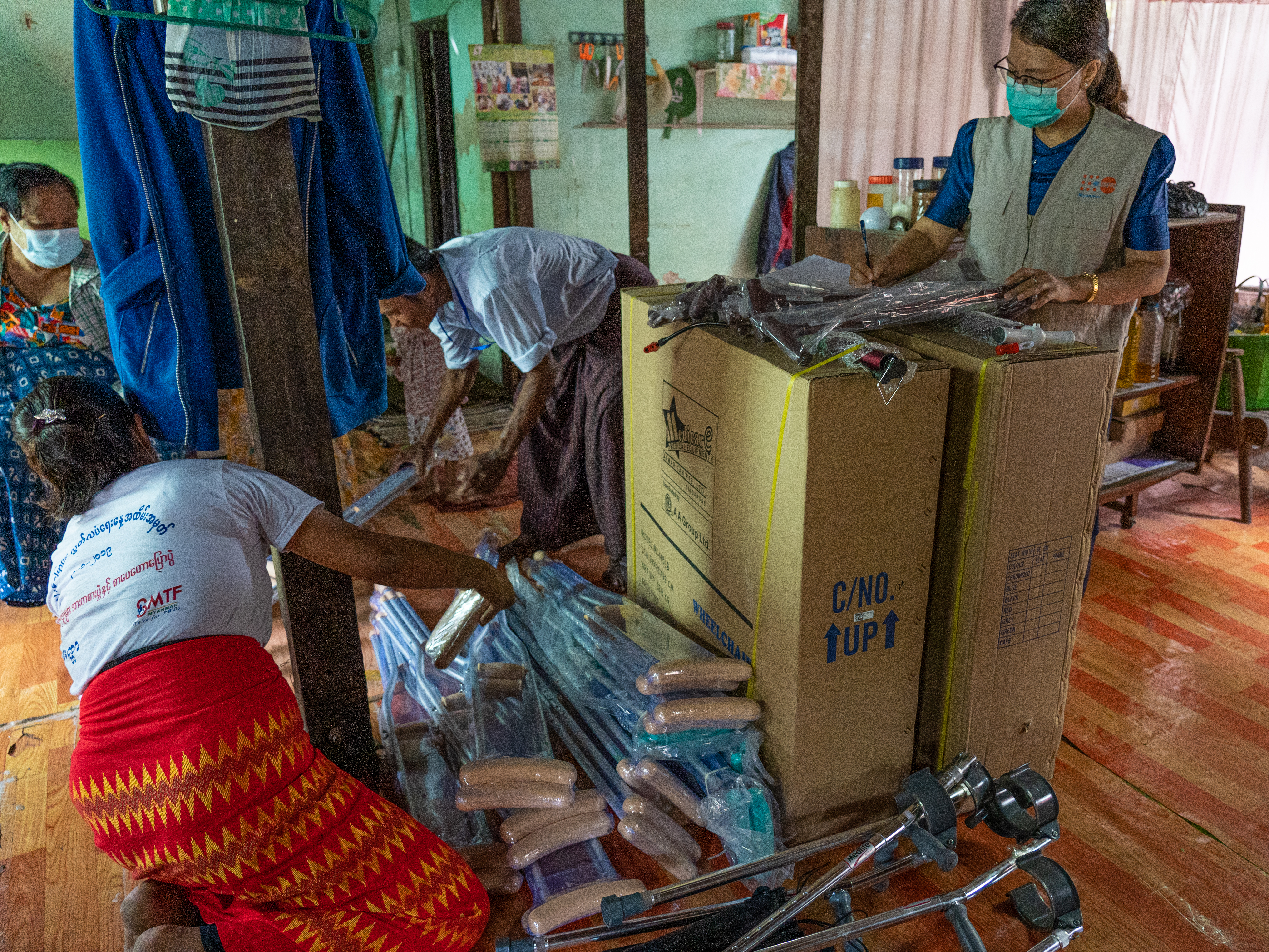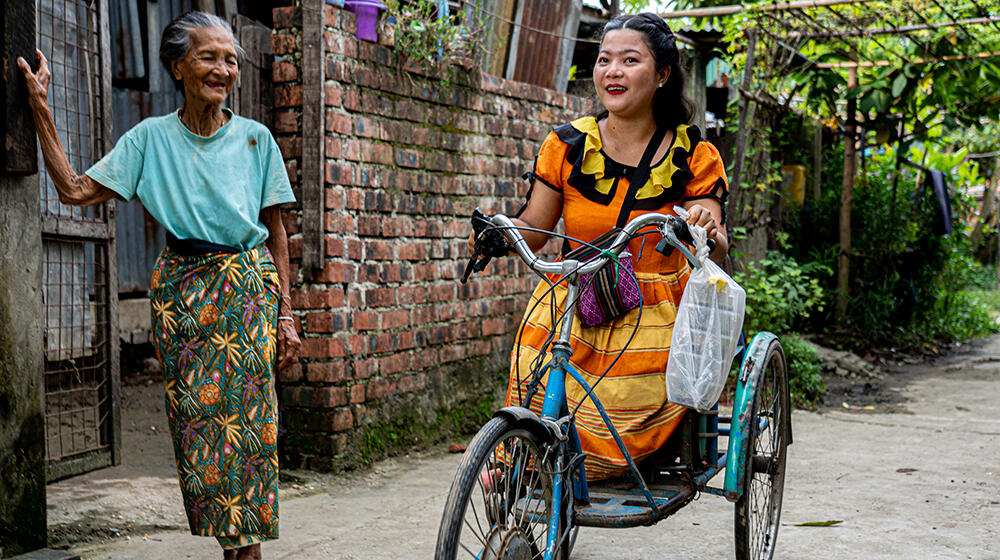“People think that we (persons with disabilities) cannot do anything. We want to show them our capacity that we can do like other people. Lack of support and discrimination make us more vulnerable to experience poverty, violence and limited access to essential services and information for our lives,” said Sabai, 20, a community person with physical disabilities in Yangon.
According to 2019 Myanmar Inter-Censal Survey, 12.8% of the population (estimated 5.9 million people) are living with disabilities in Myanmar, and 12.4% for Yangon region. It means 896,242 people are living with disabilities in Yangon region alone. COVID-19 pandemic and political crisis have exacerbated the situation of persons with disabilities. It has imposed a triple burden on persons with disabilities particularly women and girls with disabilities. Moreover, persons with disabilities in Myanmar aged 15 and over are more than twice as likely to be unemployed than those without disabilities.
The Convention on the Rights of Persons with Disabilities (CRPD) which was adopted on 13 December 2006, reaffirms that all persons with any type of disabilities must enjoy all human rights and fundamental freedoms.
Myo Myo, 19, a local youth with physical impairment in Yangon said, “I applied for a job at a local sewing shop. When they saw my situation that I am with physical impairment, they rejected my application without any other reason. I was really sad and depressed at that time. Why didn’t they want to give me a chance? I have been asking myself that question again and again. There are no equal opportunities and equal rights for women in our society but even worse for women and girls with disabilities. Together with the support from international and local organizations, we can promote the Rights of Persons with Disabilities and provide awareness to change this community perception and end discrimination against persons with disabilities.”
Stigma and gender discrimination compound the denial of their rights and choices. Women with disabilities are up to 10 times more likely to experience gender-based violence and are often prevented from accessing health services including sexual and reproductive health information and services.
UNFPA is working with local organizations in Myanmar to empower women and young persons with disabilities and ensure their full participation in public life. These supports include providing knowledge and awareness of SRHR and GBV, providing vocational trainings, business skill trainings, assistive devices to facilitate their mobility, communication and participation in the society and seed money for their income generation.
Sabai has received vocational trainings and business skills trainings from one of the local disability organizations. With support of seed money, she opened a shop and sells Korean Rice Roll (Kimbap) and Grilled fish. She even manages to do the delivery with her e-bike.
Myo Myo also received seed money and vocational training. She has started small business at her home, such as sewing and knitting crochets.

Eri Taniguchi, Acting Deputy Representative of UNFPA, said, “Our intervention significantly contributes to initiate and promote the inclusive humanitarian and crisis response and disability-inclusive society in Myanmar. With our support through local partner organizations, mobility and assistive devices could improve the daily activities of persons with disabilities. They also help women and girls with disabilities access information and services related to sexual and reproductive health and gender-based violence and participate in respective trainings.”
It is important to provide information and services for persons with disabilities considering their specific needs based on major types of disabilities, e.g providing information with sign language for those with hearing impairment and delivering tailor-made services for those with visual and cognitive impairment. Through the right support and an inclusive approach, people with disabilities can attain a higher quality of life and enjoy their rights.
“Like everyone else, I have a dream to achieve. I want to show the world that we are ‘Able’ meaning we have the ability to contribute to our community,” Sabai said.
UNFPA works towards ensuring an accessible and equitable world where everyone has access to sexual and reproductive health and rights.



